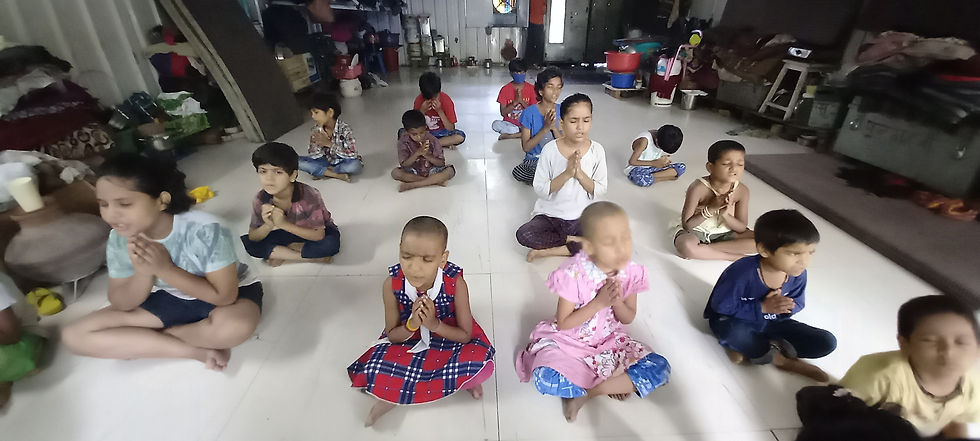Covid19: SBT's Mental Health update
- admin009558
- Feb 5, 2021
- 3 min read
Updated: Feb 22, 2021
While the lockdown seems the best strategy to halt the spread of the disease, it has affected access to essential daily goods by the most vulnerable in society, the world over. We asked Salaam Baalak Trust (SBT) to explain how this is impacting the way they work and specifically how they are managing the mental health of children and staff.
Due to restrictions in movement, and at times hoarding, arranging the dry ration in adequate amounts for children living in institutions is challenging. Our spending on diesel has gone up hugely to ensure a steady roster of care givers and essential services. Children and their caregivers cooped in a single living space within the shelter homes can have severe repercussions on their mental health. Outside of of our shelter homes, the cases of domestic violence and child abuse could be on the rise as a result of lockdown, hence the Childline telephone helpline team is still on full duty and they also step in to support community awareness.
Children living on the streets in peer groups or with street families have been pushed beyond the brink of marginalization. As they used to eke out a daily sustenance by selling balloons, roses and other wares - or by simply begging - the lockdown has left and their families with no income source. While they are at high risk for contracting Covid-19 due to their living conditions, malnutrition will further lower their immunity.

Against this backdrop, so far this year SBT has provided holistic health and nutrition care services to:
more than 1,500 marginalized children and their families
450 children living in seven residential shelter homes
200 staff members working on ground
In the global pandemic of Covid-19, mental health is becoming seriously affected which has a huge impact on the institutionalized and children with special needs and psychological issues. At Salaam Balaak Trust we currently care for 49 children who have major psychological issues, 20 of whom are on medication. All of these children need regular therapy sessions.
The initiatives taken by the Salaam Baalak Trust Mental Health Program this year include:
Online Sessions: The mental health team had a meeting and it was decided that the sessions (individual and group) will be taken online (video calling, work from home) and initial plan was shared by each centre counselling psychologists.
Methodology: Sessions conducted via video call by staff members with older children assisted with the activities. The group sessions were conducted through movie screening, discussion and other expressive techniques.
Individual Sessions:
1. Psychosocial sessions as regular individual sessions with children to address daily interpersonal issues (emotional and behavioural).
2. Referral Sessions as regular sessions with referral cases (major psychological issues), follow up and need-based management plan.


Group/LSE Sessions: sessions conducted around the concepts of
Awareness and prevention of COVID-19
Health and hygiene
Anger management
Bullying
Sexuality
Art-based activities
Sessions with older children for cooperation and managing crisis at the centre
Care for staff: There are supportive sessions for staff on stress and anger management as well as regular interaction with staff members on duty and need based sessions.
As we publish this article, the situation for marginalised street children and their families look set to worsen, at the very least, in the short term. The need for SBT to be at the forefront of holistic care, providing their Mental Health Program alongside vital safe-shelter and nutrition is greater than ever. If you are able to donate to help them continue to care for the numbers of children who urgently need it, you can do so here.




Comments